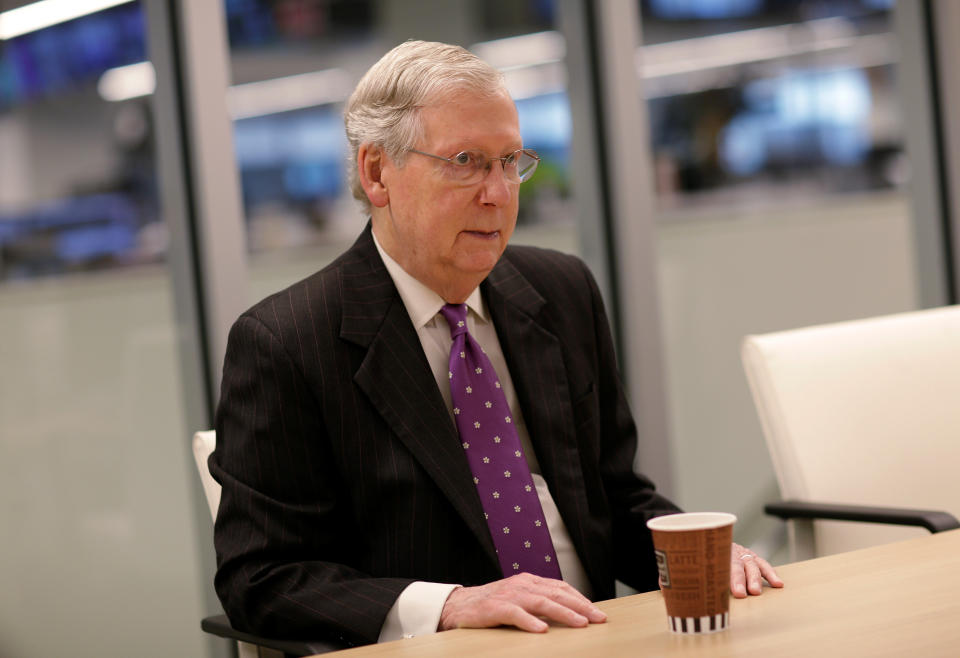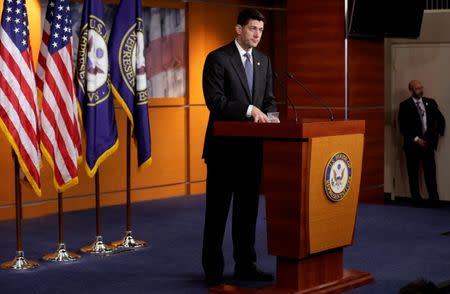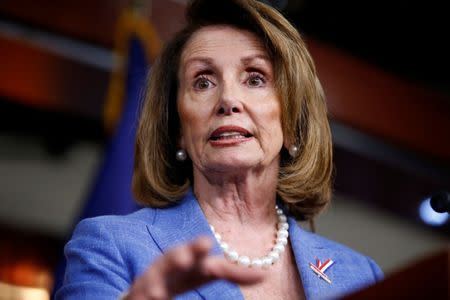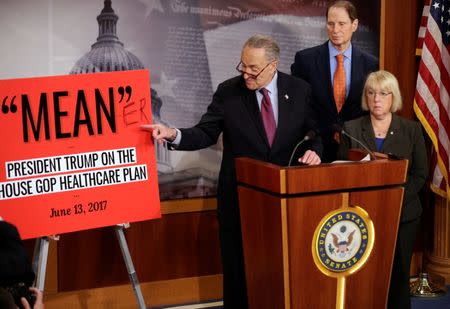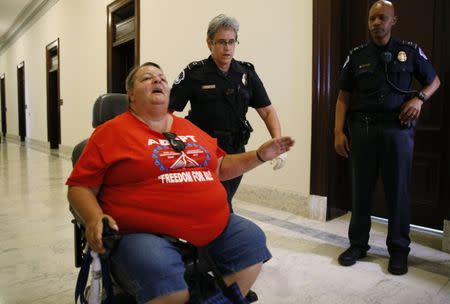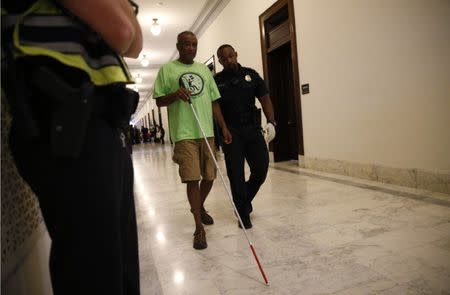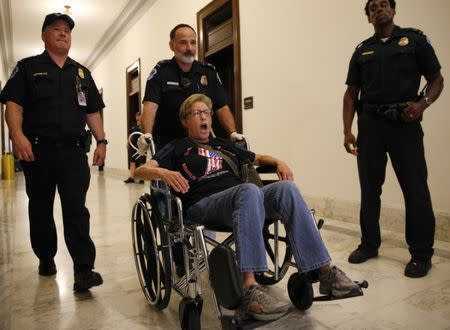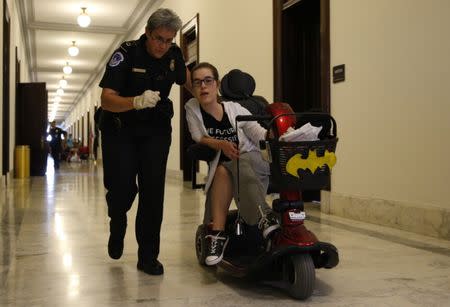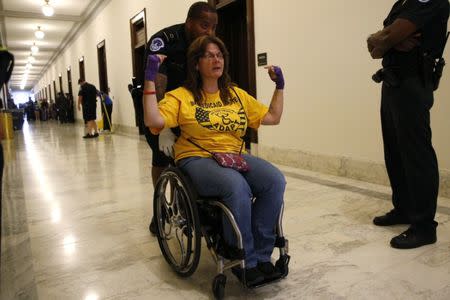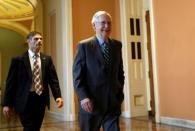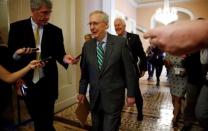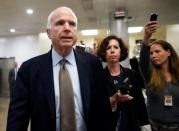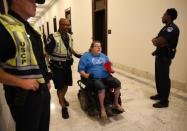Obamacare replacement bill takes center stage in U.S. Senate
By Richard Cowan and Susan Cornwell
WASHINGTON (Reuters) - A seven-year push by U.S. Republicans to dismantle Obamacare and kill the taxes it imposed on the wealthy will reach a critical juncture on Thursday when Senate Republican leaders unveil a draft bill they aim to put to a vote, possibly as early as next week.
Senate Majority Leader Mitch McConnell and his lieutenants have worked in secret for weeks on the bill, which is expected to curb Obamacare's expanded Medicaid help for the poor and reshape subsidies to low-income people for private insurance.
The subsidies are expected to be linked to recipients' income in the Senate bill, a "major improvement" from a measure approved last month by the U.S. House of Representatives that tied them solely to age, Republican Senator Susan Collins of Maine said.
Some of the Senate bill's provisions could be political land mines, with individual senators' reactions crucial to determining whether or not the Affordable Care Act, popularly known as Obamacare, survives a Republican attack that has been underway since its passage in 2010.
A draft outline circulating among lobbyists and Senate aides said Republicans would propose to give states more latitude to opt out of Obamacare regulations and limit money for Planned Parenthood, a healthcare provider that offers abortion services.
The draft outline also detailed funds to stabilize U.S. insurance markets, where customers' high medical costs have driven premium rates higher and pushed out health insurers in 2017; the situation is expected to worsen in 2018.
The Republican bill would provide $50 billion through 2021 as a short-term measure, but a separate pot of money would provide another $62 billion from 2019 through 2026, the draft said.
It was unclear what approach the bill would take to Obamacare taxes. Some reports Wednesday said the bill would seek to repeal most of the taxes that pay for Obamacare, but senators had discussed keeping some of these at least for a while, such as a 3.8-percent net investment income tax on higher earners.
For more news videos visit Yahoo View, available on iOS and Android.
Former Democratic President Barack Obama's signature domestic policy achievement has been a target of Republican wrath for years. But even with control of the White House and both chambers of Congress since January, the party has struggled to make good on its bold campaign promises to repeal and replace Obamacare.
The law is credited with expanding health insurance to millions of Americans. Republicans say it costs too much and involves the federal government too much in healthcare. President Donald Trump made Obamacare repeal a centerpiece of his 2016 campaign.
Trump has urged the Republican-led Senate to pass a more "generous" bill than the one approved by the House. He privately described that version as "mean," according to congressional sources.
Democrats accuse Republicans of sabotaging Obamacare, and say the Republican bill will make healthcare unaffordable for poorer Americans while cutting taxes for the wealthy.
'IN A REAL VISE'
McConnell may have a tough job convincing enough Republican senators the Senate bill improves on the House version. A Reuters/Ipsos poll found nearly 60 percent of adults believed the House bill would make insurance costlier for low-income Americans and people with pre-existing conditions. Only 13 percent said it would improve healthcare quality.
The nonpartisan Congressional Budget Office (CBO) estimated the House bill would kick 23 million people off their healthcare plans. Healthcare is a top priority for voters and many Republicans fear a legislative misstep could hurt them.
Collins said she would weigh the CBO's upcoming assessment of the Senate bill's impact on costs and coverage.
Conservative Republican Senator Rand Paul of Kentucky, who wants a full repeal of Obamacare, said he feared that with the legislation being developed, "we're actually going to be replacing Obamacare with Obamacare," referring to the continuing role of government.
If legislation is to prevail in the Senate, McConnell can only lose the support of two of 52 Republicans, assuming all 48 Democrats and independents oppose the bill, as expected.
"The Senate Republicans have now put themselves in a real vise," Democratic Senator Ron Wyden of Oregon told CNN on Thursday. Some conservatives want a bill "meaner" than the House version, he said, while other Republicans say they care about Medicaid, the government health insurance program for the poor.
Republican Senator Ron Johnson of Wisconsin said on Thursday he had not seen the bill, and that he and his constituents needed time to evaluate it before deciding whether to back it.
"Whatever we pass is not going to solve the entire problem. It might be better. Hopefully it will be better. It's the only way I'm going to vote 'yes'," Johnson said.
Democrats and Republicans, he added, will ultimately have to work together on a longer-term healthcare fix.
(Additional reporting by Caroline Humer; Editing by Jeffrey Benkoe and Nick Zieminski)

 Yahoo Finance
Yahoo Finance 